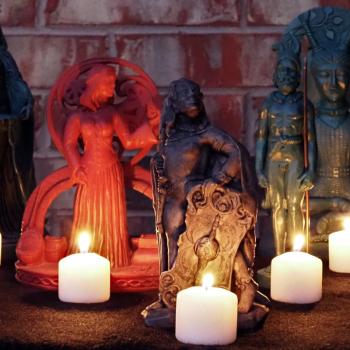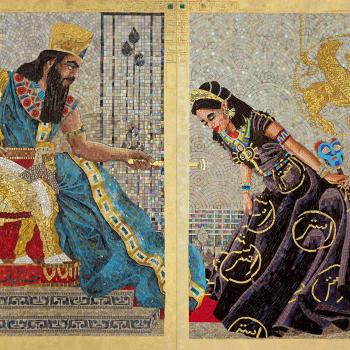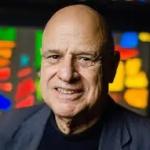In the West, Christians are generally divided into two groups, Catholics and Protestants. That is far too simple since the term Catholic includes the Eastern Christian churches. Nevertheless, most Americans and Western Europeans divide the religious world that way. If I remember correctly, up until at least through the 1950s the dog tags of U.S. military personal included a code for religious preference; the person to whom they belonged had three choices, "J," "C," and "P," for Jewish, Catholic, and Protestant.
That presented a bit of a dilemma for Latter-day Saints in the military (among other minorities) because, like others in the various Restoration movements that began in the 19th century, we don't think of ourselves as either Catholic or Protestant. To be a Catholic in the broad sense is to be one of the churches that can claim a direct historical link to Christians of the first century.
To be a Protestant is to be related to those churches (and specifically the Roman Catholic Church) in some way. It is, in one way or another, to have protested against the doctrines or practices of the Roman Catholic Church. Of course that is problematic since the 11th-century schism between the Latin and the Greek churches could be understood as a protest by the Greek-speaking church against Latin Roman Catholicism. But we don't think of the Eastern churches as Protestant. Terms like these that have a long history are rarely simple.
Faced with that dilemma of choosing between describing themselves as Catholic or as Protestant, fifty years ago Mormons almost universally opted to have "P" put on their dog tags. "Not-Catholic" was how they identified themselves when asked the question in either-or terms. I imagine that they did that perhaps partly because they accepted the anti-Catholic Protestant narrative that was standard fare in the U.S. for a long time. But since the LDS Church claims to be a restoration of the original, first-century Christian church, its members are equally not-Protestant.
Probably because of our Sunday worship style, because of the earnest bareness of our chapels, and, at least in the U.S., because of a long history of our converts coming mostly from Protestant churches, for almost two hundred years Mormons have identified themselves culturally with Protestants more than Catholics, even as they rejected the Protestant label. (This in spite of — or perhaps because of — the fact that the persecutors of early Mormons were almost exclusively Protestant.)
Among Mormons Luther, Calvin, Zwingli, and Wycliffe are recognized as religious heroes and their names are closely associated with the Protestant Reformation. In contrast, we might occasionally hear of Erasmus since he was important to both the Reformation and the Counter Reformation. But we are unlikely to hear a speaker in General Conference or other LDS meetings refer either to the Counter Reformation or to figures important to it, such as Ignatius of Loyola, Teresa of Avila, or John of the Cross.
As a result, when we speak of Latter-day Saints who are in conflict with the Church over teachings or practices, we are not surprised to hear their supporters compare them to Protestant heroes, very often Luther. Against the background of our culture and given the tensions with the Church in which such people find themselves, such references are understandable. But beyond whatever rhetorical purposes those references may serve, it is important for Mormons to remember that we are not-Protestant as well as not-Catholic.
In many ways we are much more like Catholics than Protestants: formal liturgy is at the heart of our worship (even of our Sunday worship, though that is not at first glance obvious); sacraments ("saving ordinances" in LDS terms) are essential in both traditions; we believe in grace, but like Catholics we believe that grace is appropriated through faith and works rather than only by faith (cf. James 2:26); we believe that those with priesthood authority have a role to play in confession and repentance; and clearly our ecclesiastical structure is more like that of the Roman Catholics than it is like that of the Protestant churches, though the differences are also significant. In the latter regard, in addition to the hierarchical similarities, the geographical arrangement of LDS congregations is like the traditional Roman Catholic division of congregations into parishes. You belong to a congregation because of where you live, not because you choose that congregation.
What gets valorized in the identification with Protestantism is individual conscience and the one-to-one relationship of the individual and God. For both sides of some of the current difficulties, what can get lost in that identification is the sacramental and communal character of Mormonism. We believe both that you must "work out your own salvation with fear and trembling" (Phil. 2:12) and that salvation is communal. (Scriptural passages that speak of the communal character of God's people are numerous, beginning in the Hebrew Bible and continuing into modern scripture. Thanks to Joseph Spencer I am presently thinking especially of D&C 42:36 & 38, and its implications.)





